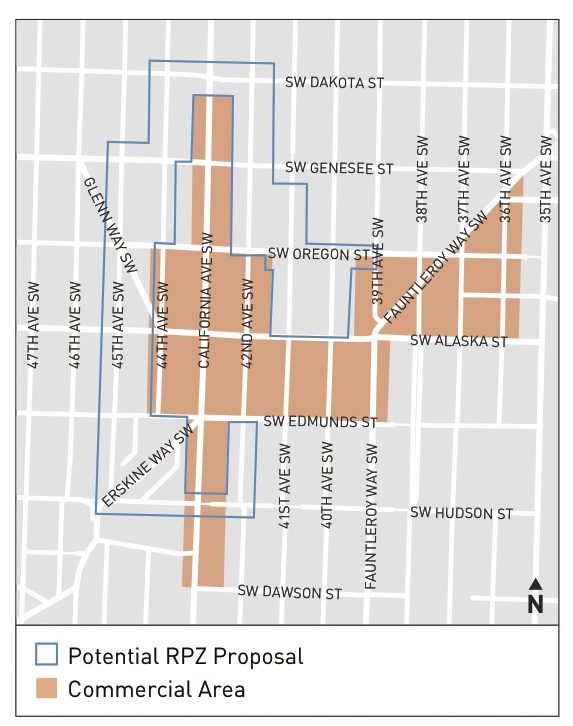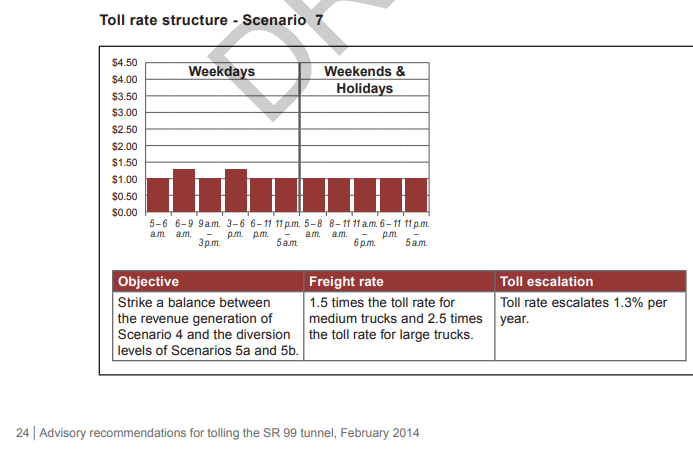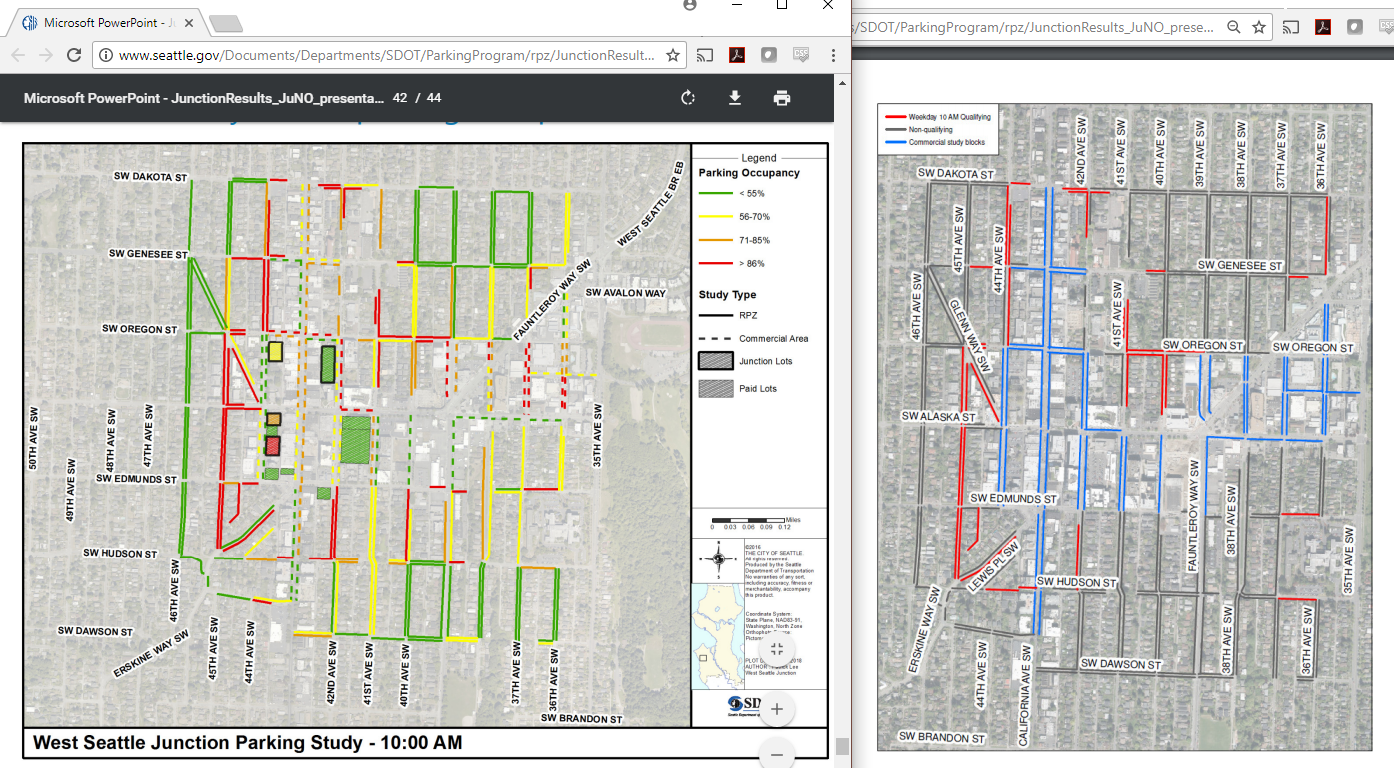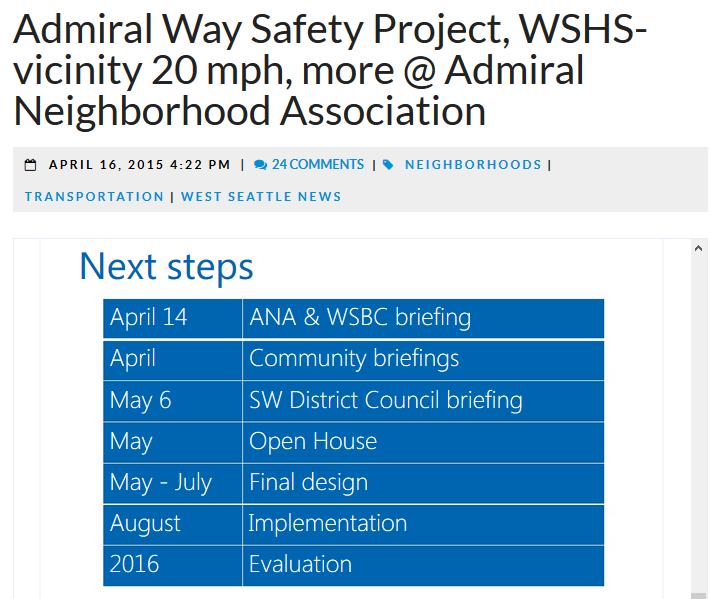The blue-outlined areas of that map are what SDOT is considering for a Restricted Parking Zone (RPZ) in West Seattle Junction-area neighborhoods. That’s the upshot of an update that two SDOT reps presented last night to the Junction Neighborhood Organization (JuNO), which had asked the city to study whether parking usage on the residential blocks in The Junction might warrant one – though the eligible areas shown above do not include all the blocks originally requested for study. Creating an PZ requires more than 20 blockfaces where parking use surpasses 75 percent, with 35 percent of it non-resident usage, and that’s what SDOT found in the areas outlined in blue on the map.
SDOT says the RPZ – which would offer permits for sale to residents (no differentiation between owners/renters, longtime residents/new arrivals) – could potentially be proposed for Mondays-Saturdays, 7 am-6 pm, with two-hour limits for parking without a permit. Here’s the full slide deck presented by SDOT’s Jonathan Williams and Ruth Harper:
You can also see the slide deck here (PDF) on the SDOT website. If you weren’t able to go to the meeting but want to hear all the details of what the SDOT team told JuNO, and Q&A with those in attendance, we recorded video:
Next steps for the potential RPZ: More community outreach, and a potential official proposal before the end of the year. Again, this originated with a community request,, ad the SDOT reps made it clear that there would be a public hearing before implementation, and in at least one other neighborhood, that part of the process killed an PRZ proposal. You can find more background on the SDOT website here. (Side note 1: This isn’t the first time an RPZ has been suggested in Junction residential neighborhoods – under different leadership and membership, it was suggested a decade ago. Side note 2: West Seattle currently has only one RPZ, in Fauntleroy neighborhoods near the ferry terminal, affecting only 2 am-5 pm.)
ABOUT COMMERCIAL-AREA PARKING: As you’ll see toward the start of the video, Harper and Williams also recapped what the West Seattle Junction Association merchants were told two months ago (WSB coverage here) – The Junction still doesn’t need metered street parking, but there may be some time-limit changes proposed later this year.
P.S. JuNO also got a light-rail update from Sound Transit last night, and we’ll cover that in a separate report.






| 53 COMMENTS